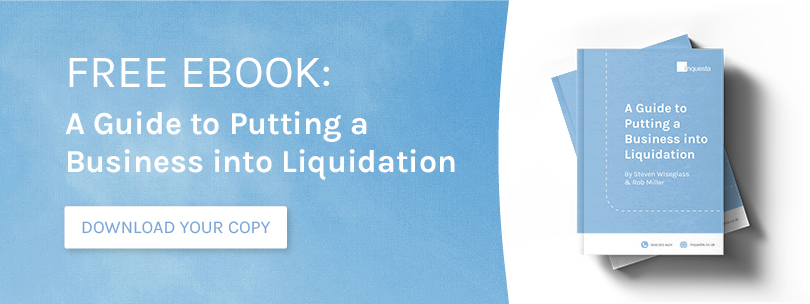All company directors have a legal obligation to act in the best interests of the business and its shareholders. They must exercise reasonable diligence and do all they can to avoid conflicts of interest. Failure to comply with these responsibilities could lead to fines, removal from their post, or even imprisonment, in particularly extreme circumstances.
Another potential punishment is that they could be disqualified from acting as director of another business for an extended period of time. The purpose of this is to prevent them from being able to make the same mistakes and poor decisions with another company.
However, there is a potential legal grey area that could enable them to continue to exert influence on a firm despite the will of the courts — can a disqualified director be a shareholder of a limited company? Find out the answer to this question and more in our blog.
What is the Difference Between a Director and a Shareholder?
The difference between a director and a shareholder is that the two roles are two distinct positions within the company. While the director is primarily responsible for the day-to-day running of operating of the business, the shareholders are the ones who actually own it.
A shareholder invests in the business by purchasing shares, this represents a certain percentage of the firm. If the company has only one shareholder, then they will control the entire operation. Owning shares in a business enables shareholders (also known as members) to vote on significant decisions regarding the future of the company they’ve invested in. They are also entitled to receive a portion of any profits that the business generates.
While members are not typically able to make decisions day-to-day, they are able to make decisions regarding exceptional matters, such as:
- Issuing or transferring shares
- Amending the Articles of Association
- Changing the name of the company
- Removing and appointing directors
- Approving a director’s loan
Company directors (also referred to as officers) are appointed by shareholders to manage the everyday running of the business, and to try to help nurture it into a success.
In order to become a director, an individual must not be under the age of 16, dealing with ongoing bankruptcy, be auditor of the business etc. It is also possible for a corporate entity, like a limited company, to be the director of another business.
A company director has many important responsibilities, such as:
- Employing staff
- Running payroll
- Registering the company for VAT and Corporation Tax
- Preparing annual accounts and tax returns
- Paying business taxes to HMRC
- Ensuring all creditors and service providers are paid
Directors must also carry out their duties in line with the “Directors Responsibilities” laid out in Section 171-177 of the Companies Act 2006.
Can a Shareholder and Director be the Same Person?
The simple answer to the question of ‘can a shareholder and director be the same person’ is yes. In fact, not only is it possible, it is actually common in limited companies for a company director to also act as a shareholder.

The reason for shareholders and directors being one and the same is so common is due to it being a legal requirement for both directors and shareholders to be nominated when the business is initially created. To avoid somebody setting up their business to need to find a second person to invest in their company, the law allows for a sole person to act as both shareholder and director.
It is also possible for the same person to act as company secretary in addition to standing as director and shareholder, although this appointment is not required legally.
How Can a Director be Disqualified?
A director can be disqualified for a number of reasons. Generally the reason for director disqualification is that the courts have decided that the individual in question should not be able to continue to manage and operate a business. Reasons to disqualify can include wrongful or fraudulent trading, unfit conduct, and failing to adhere to your fiduciary duties.
Unfit conduct that could lead to a director being disqualified can include:
- Failing to submit the company annual accounts/returns to Companies House
- Withdrawing high sums of money despite the company being insolvent
- Repeatedly failing to comply with requests from company liquidators
- Continuing to apply for and receive credit with little chance of being able to repay
- Trading when knowingly insolvent, particularly if the intention is to further make creditor repayment more difficult
Directors being disqualified is, even to this day, relatively rare. It is believed that only around 1000-1500 take place per year.
Can Disqualified Company Directors be Shareholders?
A disqualified director is not permitted to do all manner of things as a result of their disqualification, this includes form another company, act as a trustee, and work as an accountant/solicitor/barrister. However, despite all of this, they are able to act as shareholders of the business as long as there are other, non-disqualified shareholders as well.
The Companies Act 2006 only requires subscribing shareholders to agree to ‘form a company’. This means that despite not being permitted to run or carry out marketing activities for the business, they are actually able to part-own it. This is because as long as the other members are not themselves disqualified, they will be able to carry out the day-to-day running of the firm.
This means that the disqualified director will still be able to maintain some influence over a business after their disqualification, provided that they are not taking on any prohibited responsibilities.
How to Breach Your Disqualification Order
Whilst a disqualified director can be a shareholder, it is often seen as a potentially slippery slope with a great number of potential stumbling blocks that could see the disqualified director/shareholder land themselves in serious trouble. Actions that would see you breach your disqualification order include acting as:
- A ‘shadow director’ and instructing and directing other company directors on decisions to make and how to better perform their duties.
- A corporate director and sitting on the firm’s board
- A ‘de facto director’ without being formally appointed or recording with Companies House.
- A non-executive director with little difference to a formally-appointed director with regards to management or direction of the company.
How Inquesta can Help
With additional information about how a disqualified director can be a shareholder, if you’re unsure about your rights or restrictions as company director, you can rely on Inquesta to help. We take the time to understand your individual circumstances and offer professional and expert advice to ensure you always stay within the rules.
We have worked with clients from all areas of industry and have amassed decades of experience, meaning we are perfectly placed to help. At Inquesta, our customers are our number one priority- so you can be confident that we will always act with your best interests at heart.
To find out more about how Inquesta can assist you, contact a member of our team today or request a free, no obligation consultation.



